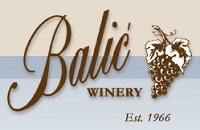Related Research Articles

The Oregon Liquor and Cannabis Commission (OLCC), formerly known as the Oregon Liquor Control Commission, is a government agency of the U.S. state of Oregon. The OLCC was created by an act of the Oregon Legislative Assembly in 1933, days after the repeal of prohibition, as a means of providing control over the distribution, sales and consumption of alcoholic beverages. To this end, the agency was given the authority to regulate and license those who manufacture, sell or serve alcohol.
The New Jersey Division of Alcoholic Beverage Control is an agency of the government of the state of New Jersey that regulates commerce in alcoholic beverages in that state.

A liquor license is a governmentally issued permit for businesses to sell, manufacture, store, or otherwise use alcoholic beverages.

The production of wine in New Jersey has increased significantly in the last thirty years with the opening of new wineries. Beginning in 1981, the state legislature relaxed Prohibition-era restrictions and crafted new laws to facilitate the growth of the industry and provide new opportunities for winery licenses. Today, New Jersey wineries are crafting wines that have earned recognition for their quality from critics, industry leaders, and in national and international competitions. As of 2019, New Jersey currently has 51 licensed and operating wineries with several more prospective wineries in various stages of development.
The Virginia Alcoholic Beverage Control Authority is one of the eleven public safety agencies under the Secretariat of Public Safety and Homeland Security for the Commonwealth. The agency administers the state's ABC laws. ABC stores are the only retail outlets in Virginia where customers may purchase distilled spirits. The profits that Virginia ABC contributes are collected from sales of distilled spirits at ABC stores, taxes collected on beer and wine sales, violation penalties and license fees. Since its establishment in 1934, Virginia ABC has contributed more than $9 billion to the Commonwealth's general fund. Virginia ABC employs more than 4,000 people statewide.

Oklahoma allows any establishment with a beer and wine license to sell beer and wine up to 15% ABV, under refrigeration.

The alcohol laws of Kansas are among the strictest in the United States, in sharp contrast to its neighboring state of Missouri, and similar to its other neighboring state of Oklahoma. Legislation is enforced by the Kansas Division of Alcoholic Beverage Control.

The state laws governing alcoholic beverages in New Jersey are among the most complex in the United States, with many peculiarities not found in other states' laws. They provide for 29 distinct liquor licenses granted to manufacturers, wholesalers, retailers, and for the public warehousing and transport of alcoholic drinks. General authority for the statutory and regulatory control of alcoholic drinks rests with the state government, particularly the Division of Alcoholic Beverage Control overseen by the state's Attorney General.
The production of beer in New Jersey has been in a state of recovery since Prohibition (1919-1933) and the Great Depression (1929-1945). Currently, the state has 123 licensed breweries: a large production brewery owned by an international beverage company, Anheuser-Busch InBev, and 122 independent microbreweries and 19 brewpubs. The growth of the microbreweries and brewpubs since the 1990s has been aided by the loosening of the state's licensing restrictions and strict alcohol control laws, many of which were a legacy of Prohibition.

The production of distilled spirits in New Jersey has not been a large industry in the state. Strict alcoholic beverage control laws in place during and after Prohibition (1919–1933) prevented the industry from growing for almost a century. In 2013, the state passed a law creating a craft distillery license. and issued the first new distillery license since Prohibition to Jersey Artisan Distilling.
Alba Vineyard is an American winery in the Finesville section of Pohatcong Township in Warren County, New Jersey. Formerly a dairy farm, the vineyard was first planted in 1980, and opened to the public in 1982. Alba is one of the larger winegrowers in New Jersey, having 42 acres of grapes under cultivation, and producing 11,000 cases of wine per year. The winery is named for the Italian word alba which means "dawn," the time of day when the original owner first conceived of producing wine.

Balic Winery is a winery in the Mays Landing section of Hamilton Township in Atlantic County, New Jersey. The vineyard was first planted in the early 19th century by descendants of the original settlers of Mays Landing. Balic is the third-oldest active winery in the state, after Renault Winery and Tomasello Winery, having opened in 1966. Balic is one of the largest winegrowers in New Jersey, having 57 acres of grapes under cultivation. The winery is named after its founder.

Brook Hollow Winery is a winery in the Columbia section of Knowlton Township in Warren County, New Jersey. Brook Hollow's original vineyard was first planted in 2002, and opened to the public in 2007. In 2013, the winery moved to a new location in Columbia. Brook Hollow has 8 acres of grapes under cultivation, and produces 1,050 cases of wine per year. The winery is named for a hollow created by Yards Creek, a stream that runs through the farm's original location.

Chestnut Run Farm is a winery in Pilesgrove Township in Salem County, New Jersey that produces Fuji apple and Asian pear wines. The apple and pear trees were first planted in 1986 as part of a specialty produce farm. Chestnut Run began sales of its wine in 2007, and opened a tasting room in 2012. Chestnut Run has 5 acres of fruit trees under cultivation, and produces 700 cases of wine per year. The winery is named for the Chestnut Run, a stream that borders the farm.
DeMastro Vineyards is a winery in the Vincentown section of Southampton in Burlington County, New Jersey. DeMastro has 31 acres of grapes under cultivation, and produces 7,000 cases of wine per year. The winery was incorporated in 1990. The winery's name is an amalgamation of the owners' surnames.

Four JG's Orchards & Vineyards is a winery in Colts Neck in Monmouth County, New Jersey. The vineyard was first planted in 1999, and opened to the public in 2004. Four JG's has 40 acres of grapes under cultivation, and produces 2,500 cases of wine per year. The winery is named after the four family members that own it, all of whom have the initials "JG."

Southwind Vineyard & Winery is a winery in Deerfield Township in Cumberland County, New Jersey. A family horse farm since 1978, the vineyard was first planted in 2006, and opened to the public in 2012. Southwind has 4 acres of grapes under cultivation, and produces 800 cases of wine per year. The winery's name reflects the Southern origin of the farm's original owners, and their desire to provide Southern hospitality.

Swansea Vineyards is a winery in Shiloh in Cumberland County, New Jersey. Formerly a produce farm, the vineyard was first planted in 1994, and opened to the public in 2007. Swansea has 12 acres of grapes under cultivation, and producing 2,000 cases of wine per year. The winery is named for the original settlers of Shiloh who were Seventh Day Baptists from Swansea, Wales.
The New Jersey Farm Winery Act was legislation passed by the New Jersey state legislature and signed by Governor Brendan Byrne in 1981. The Farm Winery Act was the first of several efforts by the New Jersey state legislature to relax Prohibition-era restrictions and craft new laws to facilitate the growth of the alcoholic beverage industry and provide new opportunities for winery licenses. Before it was enacted, New Jersey provided only one winery license for each million residents and licenses were practically impossible to obtain. By 1981, New Jersey boasted only seven wineries. By 1988, that number had doubled to 15. As of 2014, New Jersey currently has 48 licensed and operating wineries with several more prospective wineries in various stages of development. New Jersey wineries produce wine from more than 90 varieties of grapes, and from over 25 other fruits.
References
- ↑ New Jersey General Assembly. "N.J.S.A. 4:10-77(c)". Statutes of New Jersey. New Jersey. Promulgated under New Jersey Public Law 1985, chapter 233, section 3; amended by Public Law 1989, chapter 209, section 5.
- ↑ New Jersey State Department of Agriculture. Commodities Councils - New Jersey Wine Industry Advisory Council. Retrieved 1 March 2013.
- ↑ New Jersey General Assembly. "N.J.S.A. 4:10-77(c)". Statutes of New Jersey. New Jersey.
- ↑ New Jersey General Assembly. "N.J.S.A. 4:10-77(a)". Statutes of New Jersey. New Jersey.
- ↑ New Jersey General Assembly. "N.J.S.A. 4:10-77(b)". Statutes of New Jersey. New Jersey.